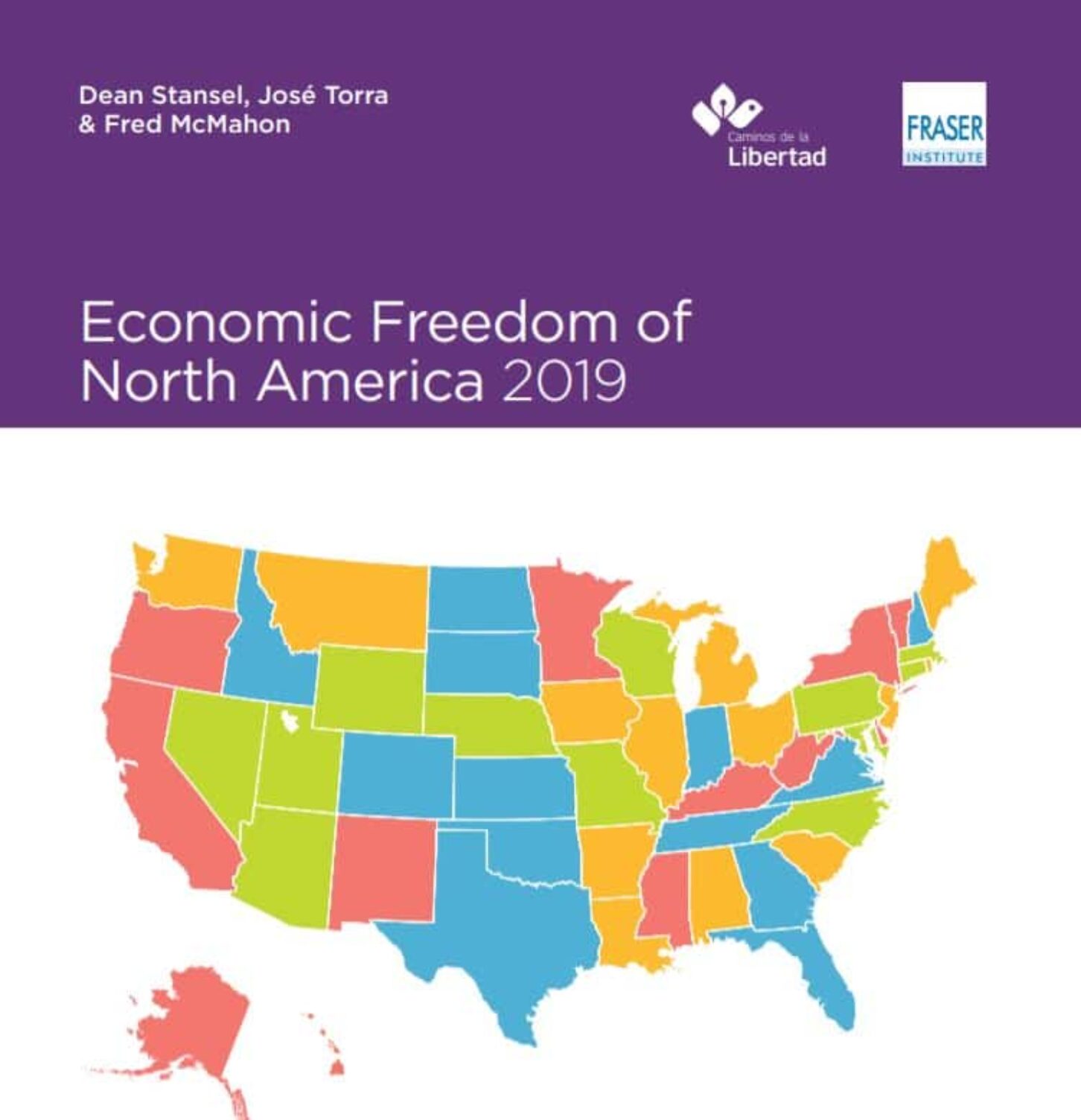
The news gets better by the day for Georgia. In the same week Site Selection magazine pronounced Georgia the best state for business – for the seventh year in a row – an annual, international analysis ranked Georgia sixth in the nation for economic freedom, up one position from last year.
The Economic Freedom of North America, published annually by the Fraser Institute of Canada, was released Thursday. It measures the extent to which the United States, Canadian provinces and Mexican states are supportive of economic freedom, “the ability of individuals to act in the economic sphere free of undue restrictions.” The measurement of government spending, taxation and labor market restrictions uses data from 2017, the most recent year of available comparable data.
Georgia earned an overall score of 7.2 out of 10 in this year’s report, not far behind top-ranked New Hampshire (7.93). Ranked last was New York State (4.49), at the bottom of the heap for the fifth year in a row.
The good news is the state’s national score and ranking improved after it languished at No. 7 for the past two years, with an overall score of 7.11 in 2017 and 7.13 in 2018. Not so good is that while Georgia is a respectable sixth in the nation, it’s also trailing no-tax neighbors Florida (No. 2) and Tennessee (No. 3) as well as Virginia (No. 4) and no-tax Texas (No.5). (Virginia’s strengths: No. 1 in labor market freedom and No. 4 in government spending.)
Georgia’s overall national ranking on taxes was 21. It was 36th in the nation for its top tax rate of 6% in 2017, and 28th in the nation for income and payroll revenue as a percentage of personal income.
To be fair, that was 2017, and Georgia’s top tax rate was cut to 5.75% in 2018, so the state’s ranking, especially on taxation, can be expected to improve next year from its current No. 21, in the nation, and again in the future if legislators next year follow through with their plan, outlined in a 2018 law, to cut the top tax rate to 5.5%.
More bright news is in Georgia’s rankings on labor market freedom: No. 5 in the nation. Again, there is good news: Gov. Brian Kemp has made it a priority that Georgia becomes the best state in the nation for small business. His Georgians First Commission comprises 12 task forces examining how to improve the state’s small-business climate, focusing on issues ranging from occupational licensing to permitting, healthcare, access to capital and competitiveness. (The Georgians First Commission will discuss its efforts at the 2019 Georgia Legislative Policy Forum in Atlanta on November 15.)
On government spending, Georgia is ninth best in the nation, with an overall score of 7.8 out of 10 points.
Rounding out the bottom five states for economic freedom are West Virginia (49th), Alaska (48th), Vermont (47th) and Oregon (46th).
The report also includes an additional all-government ranking, which adds federal government policy to the index and examines the 50 U.S. states, 32 Mexican states and 10 Canadian provinces. From 2003 to 2017, the average score for U.S. states in the all-government index fell from 8.23 to 7.92, according to the 2019 report. With the Trump administration’s efforts to reduce federal government regulations beginning in 2017, expect the all-government score to improve, too.
The report found that in the most-free jurisdictions of North America, average per capita income was 9.2% above the national average compared to 3.4% below the national average in the least-free jurisdictions.
“Higher levels of economic freedom lead to more prosperity, greater economic growth, more investment, and more jobs and opportunities,” explained Dean Stansel, report co-author and economics professor at Southern Methodist University. (The report is also co-authored by José Torra, head of research at the Mexico City-based Caminos de la Libertad.)
“Georgia continues to rank near the top for economic freedom, though it falls below several of its regional neighbors. The primary factor preventing the state from ranking even higher is its above average-income tax rates,” Stansel added. “Since income taxes are the most harmful for economic growth and most of its regional neighbors have lower rates or no income tax at all, further rate reductions should be a top priority for state policymakers.”
With Georgia’s governor and the federal government working to reduce the regulatory burden and improve opportunity, the future looks promising.
(This commentary was edited on November 25, 2019, to add the Georgia-specific quote from Dean Stansel.)
Access the full report at www.fraserinstitute.org/economic-freedom.